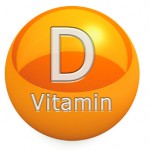One big issue in studying vitamin D is there is no consensus on what’s a healthy level of the nutrient, Avenell said.
“There’s a lot of disagreement between different bodies producing guidelines around the world,” she added. “Our work would suggest that it’s a lot less than people have thought.”
While the new findings may hold true for the average person, they may be wrong for people whose bones have already thinned, said Dr. Ethel Siris, director of the Toni Stabile Osteoporosis Center at NewYork-Presbyterian/Columbia University Irving Medical Center and a professor of medicine at Columbia University.
“The main reason older women begin to lose bone mass and to have fractures is loss of estrogen at menopause,” Siris said. “A risk factor for it getting worse is low levels of calcium or vitamin D. There’s an argument about how much is needed, but if there’s a bone problem already, you want to make sure you’re adequately covered with respect to calcium and vitamin D.”
The risks associated with vitamin D are tiny, Siris said. “And while we’d rather people got their vitamin D through their diet, we will add a pill if necessary. My patients can’t afford to have a vitamin D deficiency.”
The bottom line on the new study, Siris said, “is it’s not changing my point of view with respect to the types of people I take care of.”
Siris said she’s concerned that news about the new research will convince people who already have brittle bones to stop taking their vitamin D supplements. “People read (news stories) about these things and assume what they read yesterday is the current truth,” she added.
Reference
-
Mark J Bolland, PhD, Andrew Grey, M, Alison Avenell, MD, et al. Effects of vitamin D supplementation on musculoskeletal health: a systematic review, meta-analysis, and trial sequential analysis. The Lancet. 2018 Oct 4. https://www.thelancet.com/journals/landia/article/PIIS2213-8587(18)30265-1/fulltext


